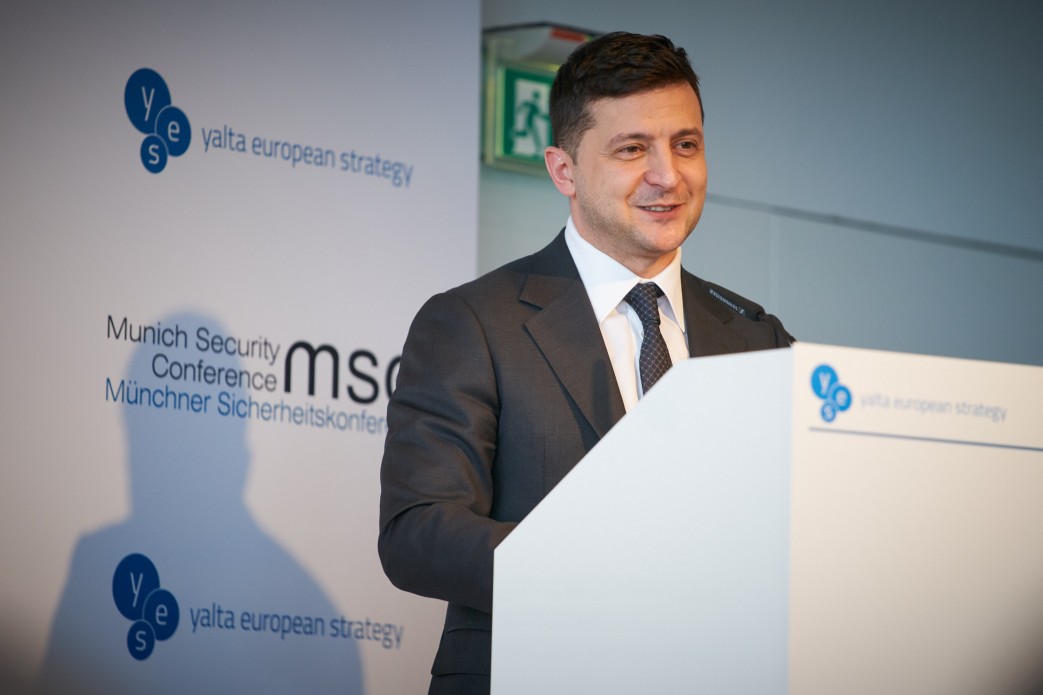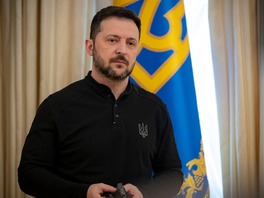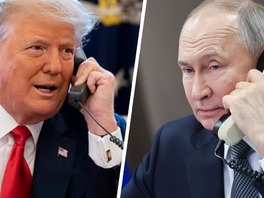At the start of Zelensky’s presidency, ICPS experts had already analysed and written about how his initial steps in the sphere of foreign policy were eerily similar to that of his predecessor, despite harshly criticizing Poroshenko’s policy during his electoral campaign.
Poroshenko started off his presidency in 2014 with promises similar to Zelensky: to achieve peace in Eastern Ukraine without any concessions. Very quickly he had to face the fact that he had bitten off more than he could chew and that ending the war in Eastern Ukraine was much easier said than done. Poroshenko’s card house of promises quickly collapsed and the remainder of his foreign policy proved itself to be monotonous and lacking further innovation.
Zelensky, after his initiation period, similarly did seem to be invested in the reinvigoration of conflict resolution in Eastern Ukraine and set on a drastic change of direction in foreign policy towards Russia, in order to fulfill his promises of peace and prosperity. He restarted the Normandy Format and even went so far as to initiate direct contact with Russia, something that Poroshenko near the end of his presidency adamantly refused. For a while, it seemed like the tide might be changing.
But an abundance of internal political changes brings about adjustments in Ukraine’s foreign policy as well. Zelensky’s focus on Russian aggression has shifted to internal structures and problems, as Ukraine struggles to keep the CoVid19 pandemic at bay and keep the protesting crowds in Kyiv under control. Additionally, the past months have been marked by an abundance of newly appointed seats in high positions, leading to foreign policy rhetoric from the office of Yermak which Ukrainians have heard before: the mentioning of “red lines”, border controls and refusing any further direct contact with Russia. We now see that, despite Zelensky’s brief attempt to escape the previously determined narrative, he has too fallen in the same pattern. This is remarkable, to say the least, as Zelensky’s election campaign thrived on harshly criticizing Poroshenko’s inefficiency and lack of results. Repeating his mistakes will most likely cause Zelensky to end up with a similar, angry, crowd of Ukrainians who will be more than happy to sack him when the opportunity arises.
 Zelensky and Yermak
Zelensky and Yermak
The most important question to ask is, of course, why this is happening. It’s quite possible that Zelensky has been scared off by the heavy push-back he received near the end of 2019 from extreme right-winged groups who oppose the continuation of dialogue in the framework of the Minsk agreements. Even within his own government there are those who haven’t shied away from heavily criticizing the tripartite contact group. Another possible explanation for the sudden change to the fixed trajectory lays with the increasing authority of Yermak, Zelensky’s latest right-hand man. Additionally, it must also be noted that Poroshenko’s foreign policy team wasn’t replaced when Zelensky came to power, as any attempt to inject Zelensky’s pawns into the working group was met with sabotage. Adding to that, the youth and inexperience of Zelensky’s team was a self-sabotaging trait in itself, as its members had no clue on which innovative options or possibilities they might have in order to restart the discourse on conflict resolution. For Poroshenko’s old team, it didn’t prove to be too hard to convince Yermak to turn around the new direction Zelensky was heading in and stick to the same old worn out narrative.
Now, it seems that the momentum to push through radical changes in Ukraine’s foreign policy has passed us by. After the last presidential elections, the diplomatic community had braced itself for substantial changes in both external policy and internal politics, something that is hard to accomplish in Ukraine. In order to achieve this and enforce those changes until the very end, however, Ukraine needed a strong-willed key figure who would symbolize a renewal in the nation’s foreign policy. With the constant coming and going of ministers and government officials, it seems that the lack of consistency has smothered this opportunity once and for all or at least for the duration of this presidency.
The continuation of Poroshenko’s legacy is a dangerous and unwise move for Zelensky, because he already knows what the end result will lead to: a continuation of the frozen conflict with Russia, frosty and stagnating relations with other countries who are less and less inclined to become involved, and an angry crowd who feels cheated by broken promises. Falling back into previously established patterns is an easy fall-back for Zelensky, but the further he goes into his presidency, the more his policies will become set in stone, making it impossible for him to renew his ambitions to radically push out of status quo and create a new foreign policy narrative. This will result in damaging his household name as a president and as the face of the Sluga Narodu party. Whether or not that will already directly be palpable in the local elections (to be held later this year) is still too early to tell.
On an international level, it would’ve been a great accomplishment for this administration to establish Ukraine as a valuable player in the ménage a quattre between the United States, the Russian Federation, the European Union and China. Instead, however, Ukraine has seemingly found itself lost in the Bermuda triangle. Still remaining the beggar state of the European Union, Ukraine keeps lacking provocative and thought-provoking initiative in the international arena. It remains dependent on the US, Germany and France, fruitlessly waiting for them to take initiative in solving the bilateral conflict with Russia, while these countries grow more and more wary and fatigued by Ukraine’s insistence to solve the armed conflict on the borders of the EU. In the meantime, Russia has bounced back from the painful economic sanctions it had suffered 6 years ago, and continues to inject itself back in international games as if nothing is wrong. While Russia further injects its influence in the US and EU, the latter are more distracted by their distrust towards China and no longer consider Russia to be the main antagonist in the international arena. “Ukraine fatigue” has already set it, and Zelensky’s foreign policy has been unable to stop or deter it in the past year. Now, the “Ukrainian problem” has been rendered to a tool for the bigger powers in the world, merely to be used in a much larger power struggle between the US, the EU and Russia.





